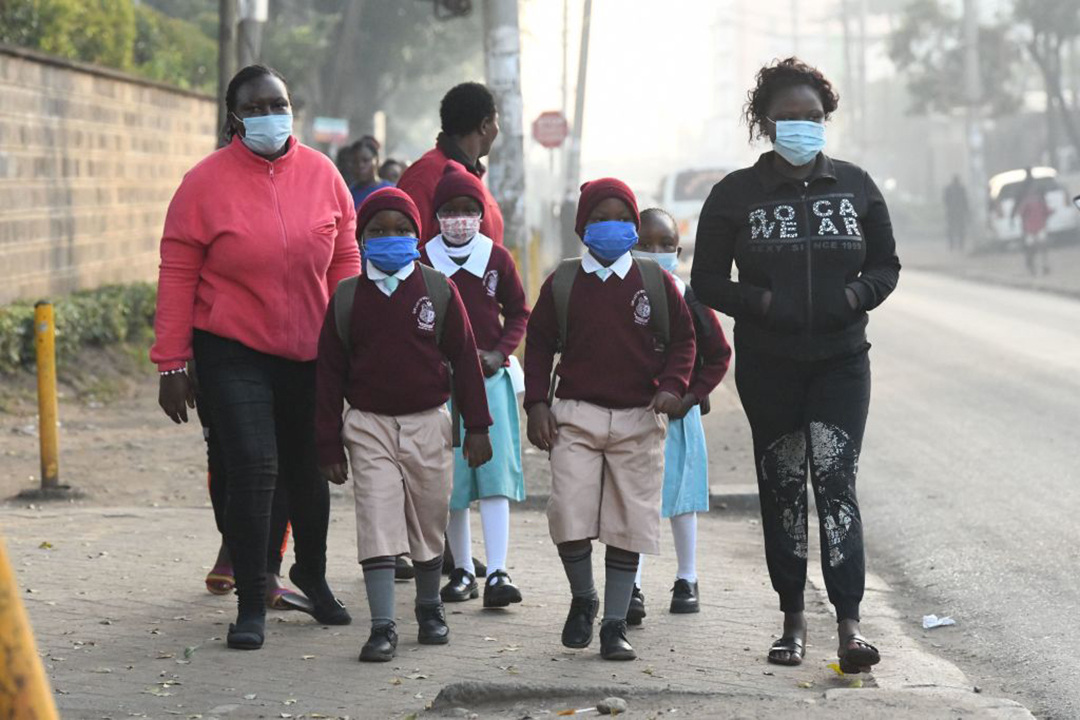East African Nations Battle New Wave of COVID-19
ADF STAFF
Three months after lifting a nationwide mask mandate, Kenya reinstated the order in late June amid a sixth wave of COVID-19 cases. The directive calls for wearing of masks in confined public spaces, including public service vehicles and airplanes.
Kenya is the second East African nation to experience a sixth wave of infections, after Mauritius, Dr. Ahmed Ogwell Ouma, acting director of the Africa Centres for Disease Control and Prevention (Africa CDC), said during a virtual briefing in mid-June. Between June 6 and June 12, the country experienced a 92% increase in new cases.
At the time, Ouma said Ethiopia was grappling with its fifth wave of infections, while Somalia reported a fatality rate of 5%, well above the global average of 1.2%. Zambia was also among the top five African nations reporting the highest number of new cases, according to the Africa CDC.
Zambian Health Minister Sylvia Masebo was concerned about a pending sixth wave in late May, when hospital admissions due to COVID-19 increased. Masebo urged the public to adhere to prevention measures.
“May I take this opportunity to urge all organizations, including places of worship, schools, businesses, houses to quickly report any increase in respiratory infections and indeed any other infectious diseases to the health authorities for quick action,” Masebo said in a report by Zambian newspaper Lusaka Times.
Kenyan Health Minister Mutahi Kagwe characterized the country’s number of new infections as “worryingly high.”
“We must once more take our steps to prevent the slide into a crisis like the one we experienced in 2020 and 2021, when we lost many lives and resources,” Kagwe said in a televised address. “Luckily, the increase in cases is so far not associated with increased hospitalizations with the majority [of patients] being managed under home-based care and isolation.”
However, Kagwe said the country’s sixth wave will likely get worse during winter months. On June 20, the date of Kagwe’s address, the country recorded a 12.6% positivity rate, its highest since March, The East African newspaper reported. The sixth wave is driven by the highly infectious BA.2 sub-variant.
The situation is similar in Tanzania, which reported a 137% increase in new infections in a month, Ugandan newspaper Daily Monitor reported in late June.
A spike of new infections led the Ugandan Health Ministry to urge the public to resume prevention measures, such as wearing masks, social distancing and frequent hand washing.
Ugandan Health Minister Dr. Jane Ruth Aceng said the country went from recording no new infections to an average of 50 a day in late June, although the country did not implement a lockdown.
“This increase is similar to the rise we faced in June 2021 when the delta variant was prevalent,” Aceng told Daily Monitor, adding that the omicron variant was currently the most prevalent variant.
Ugandan President Yoweri Museveni said he was worried about the spread of new infections after witnessing more than 1 million people celebrating Martyr’s Day in central Namugongo.
“People did not wear masks at Namugongo,” Museveni said in the Daily Monitor report. “They think, wrongly, that when you are in church, you don’t get sick. I am a bit worried about what I saw there.”


Comments are closed.